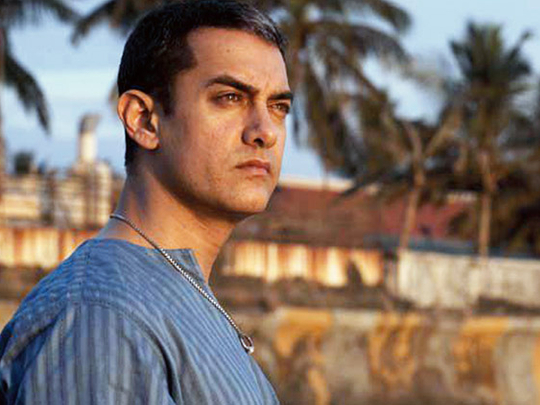
- Cast Aamir Khan, Prateik Babbar, Monica Dogra, Kriti Malhotra
- Director Kiran Rao
- Rating G
Often films get overshadowed by the popularity of an actor, or so is the trend in Bollywood. It's never ever about the story. So, when the illustrious Aamir Khan teamed with his wife, Kiran Rao, for her directorial debut, Dhobi Ghat, it was easy to expect typical clichés. However, that's exactly what Rao manages to avoid.
She quashes Bollywood myths and stereotypes to tell a tale about four people. There's nothing Bollywood here - nothing like anything you've ever seen before. Rao blatantly ignores the Bollywood "formula", misconstrued often by creatively-challenged filmmakers, and sets about exploring the nuances of human emotions realistically.
It's a poetic tribute to Mumbai - one that'll make you fall in love with the city... or in my case, all over again!
Rao centres Dhobi Ghat around the recluse artist Arun (Khan), the timid yet ambitious Munna (Babbar), the innocently charming Yasmin (Malhotra) and the spirited Shai (Dogra). Each from distinctly different economic backgrounds, yet united in emotional complexities. In fact, Rao doesn't throw any narrative surprises (a la Hollywood's multiple storyline Crash) while establishing each interactions. She keeps it natural, understated and real - that's what works in its favour.
While the stories of hope and aspiration unfold in poetic synchrony, Mumbai remains subdued, yet influential. The pace is purposefully slow, something unimaginable in Bollywood, but one that's imperative in accentuating the narrative. The long silent phases further establishes the hurdles gracefully.
Khan's take on an artist's hazy nicotine-driven life is brilliantly essayed in numerous puffs. Nonetheless, it's the relatively newcomer Prateik's striking portrayal that makes Munna the soul of the film. He deals with the vulnerabilities of the working class with honesty and sensitivity. He plays Munna's Bollywood aspirations with maturity. Clearly, his genetic supremacy is unquestionable here. Even debutants - Dogra and Malhotra - create an impact with their versatility. While Dogra makes Shai affable, Malhotra lends Yasmin a charismatic innocence. Rao's lines - part English, part Hindi, part Marathi - are typical of Mumbai, but non-filmy. Even her supporting cast remains refreshingly real.
While Mumbai has been an inspiration to numerous Hindi films in the past, this tribute, by far, is the most authentic. That's a feat, considering that Mumbai montages are plenty.
When most film-makers toy with the idea of realistic cinema, here's a filmmaker who has dared to go all out. Her references are subtle and stark - crediting her audience with some grey matter.
Venture out only if you're willing to forgo Bollywood realism.








